Join Fairtrade producers in powering sustainable change across East Africa through investing in the second round of our successful Inclusive Energy Fund (IEF).
This initiative aims to deliver high-impact clean energy solutions by working with tea and coffee-producing communities in Kenya, Rwanda, and Uganda. To achieve this, we hope to raise £2 million in funding.
With a high impact ratio ensuring 80% of investments directly support projects, IEF 2.0 offers a unique opportunity to commercial and institutional funders looking to work with producers to drive community development, environmental sustainability, and entrepreneurship.
We are looking for funding from April 2025 – May 2027 to support producing communities to transform lives through accessible, clean energy solutions.
Contact us to express your interest and to discuss in more detail.
What is the Inclusive Energy Fund
The Fairtrade Inclusive Energy Fund (IEF) is a pioneering challenge fund designed to accelerate access to clean and off-grid energy technologies within Fairtrade producing communities.
Currently, approximately 600 million people in Sub-Saharan Africa lack access to electricity (IEA, 2022). To inclusively expand energy access, the IEF works directly with Fairtrade certified producer organisations to facilitate the design, and launch of community-focused energy projects, and then supports these organisations to implement, manage and monitor them.

Steven Kasumba, a newly trained solar technician, completes a new solar installation on a rooftop in Western Uganda. The technical training was provided through Kasaali’s IEF Project.
What makes the IEF unique?
The IEF is a community-led approach and comprehensive support structure, which:
- Provides both technical and financial assistance to project implementers (meaning 80% of invested funds can directly support projects).
- Supports producer organisations throughout all project stages, and co-developing tailored, feasible solutions that match their specific community needs and contexts.
- Combines grant and loan-based financial support for project activities and procurement.
- Fosters community ownership and entrepreneurship through technical training and skills development.
The first round of the IEF demonstrated remarkable success across Rwanda, Tanzania, and Uganda, supporting six producer organisations and reaching over 19,600 tea and coffee farming families.
Key achievements include:
- 7,730 people attended energy training or events
- 42 local technicians trained in solar installation, repair and maintenance
- Established youth-operated technical centres
- Implemented innovative ‘pay with coffee’ loan systems
- Supported 383 households to adopt off-grid energy products
- Worked with 148 households to access finance through dedicated loan facilities
The programme proved particularly effective in combining energy access with improved agricultural productivity, supporting sustainable livelihood development.






1) Coffee farmers in Kasaali’s membership base in Uganda participate in a learning and demonstration session relating to solar home system equipment and operations; 2) A newly trained young solar technician; 3) Producer organisation members attending a green energy awareness session; 4) Flyers printed to advertise the IEF project in surrounding communities; 5) Coffee farmers participate in a learning and demonstration session on a solar home system; 6) A household that has benefitted from the loan facilities.
Support climate resilience and entrepreneurship
IEF 2.0 is set to create even greater impact with an expanded £2 million funding target and refined focus on Kenya, Rwanda, and Uganda.
The second round incorporates successful elements from Round 1, such as tailored project design approaches and innovative financing mechanisms, while strengthening partnerships with energy service providers and financial institutions.
With its enhanced scale, proven model, and strategic focus on sustainable community development, IEF 2.0 is positioned to work with producers to gain access to clean energy solutions while promoting climate resilience and entrepreneurship.
Lessons from Round 1: IEF’s Impact & Innovation Roadmap

The IEF Learnings Report outlines how targeted energy funding can drive co-operative innovation and sustainable development. It showcases how producer-led design and flexible financing transformed energy access in six East African communities.
Through real project examples, data-driven insights, and key success factors, discover how the Fund’s unique approach delivered 98% loan repayment rates and reached almost 20,000 households.
Powering Change: Five Stories of Clean Energy Innovation
From solar-powered coffee drying in Rwanda to youth solar technicians in Uganda, discover how co-operatives are turning clean energy investments into lasting change. These projects show how smart financing can create multiple wins – cutting costs, opening new business opportunities, and protecting the environment.
Whether it’s women bakers using solar ovens, farmers accessing green energy loans, or families lighting homes with solar power, see how the Inclusive Energy Fund is supporting co-operatives to build cleaner, brighter futures.
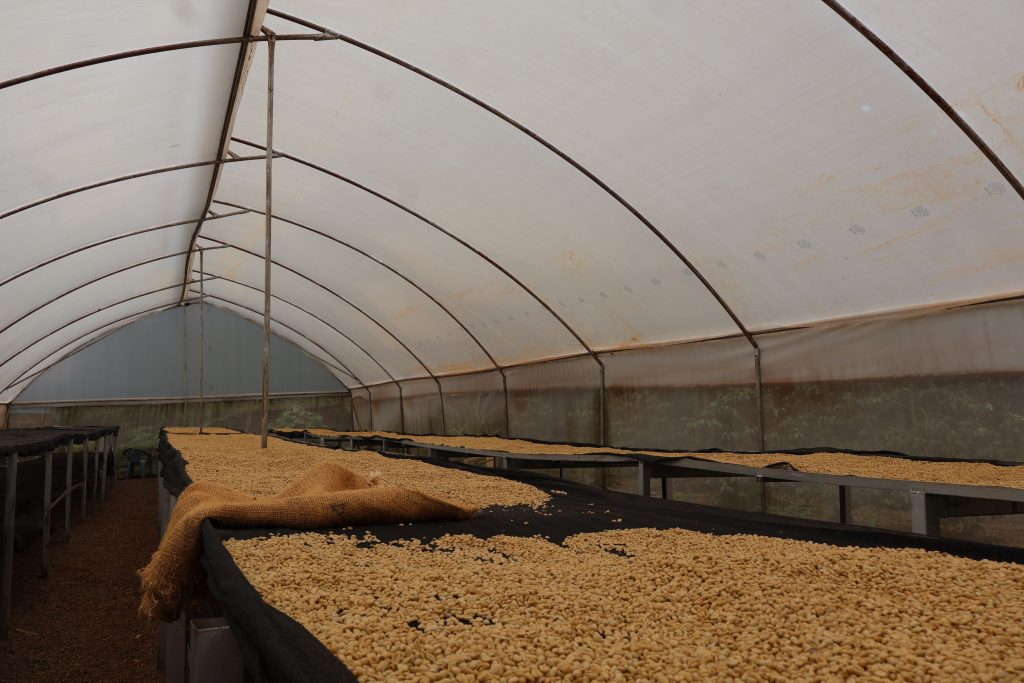
Solar Drying: A Smarter Way to Dry Coffee
The Abahuzamugambi co-operative installed a modern solar parabolic dryer to revolutionise their coffee processing at Sovu washing station.
This sustainable solution has cut drying times, reduced labour costs, and eliminated the need for wooden drying tables – prompting the co-operative to plan similar installations across all their washing stations.
A simple yet effective example of clean energy driving quality and efficiency improvements in coffee production.
Lava Rock Technology: Women Launch Bakery with Solar Power
BCDI, an all-women coffee co-operative in Uganda used solar-powered ovens to launch a community-run bakery.
Through their innovative project, BCDI is supporting members like ‘Maama Mandas’ supplement her coffee income with fresh baked goods.
With 28 trained bakers already supplying local schools and markets, this sustainable enterprise is proving that clean energy can power new opportunities for women entrepreneurs.
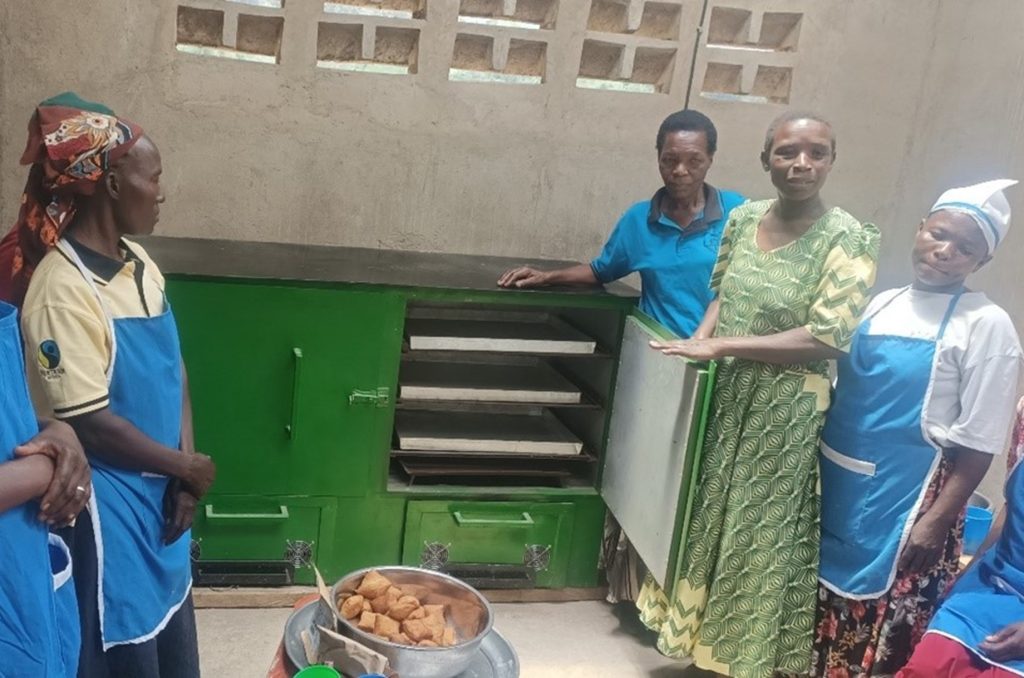
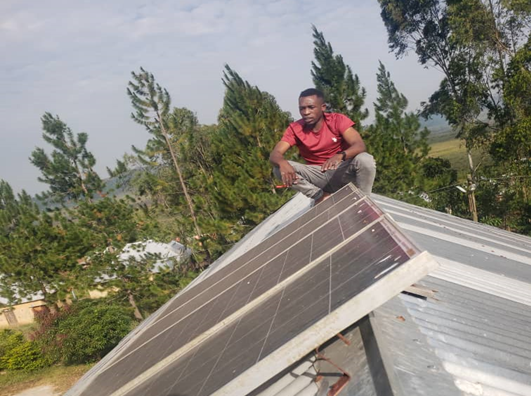
Driving Youth Employment: Solar Tech Creates New Career Paths
Meet Steven Kasumba, one of 10 young solar technicians who participated in training through KACFA’s programme in Uganda.
From installing 45-camera security systems to supporting farmers in the area to access clean energy, youth entrepreneurs like Steven are turning technical skills into thriving businesses.
The KACFA co-operative is lighting up communities while creating meaningful employment opportunities for the next generation.
Household Solar: Women Light the Way with Solar Solutions
From safer homes to better study conditions for children, discover how BCDI’s women coffee farmers are embracing solar power to transform their daily lives. Through Betty Mukite’s story, see how this all-women co-operative is tackling energy poverty while dispelling myths about solar technology. Their experience shows how clean energy can create immediate benefits for rural families – from phone charging to improved home security.
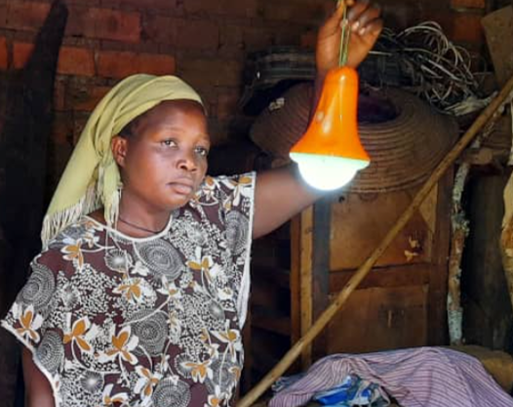
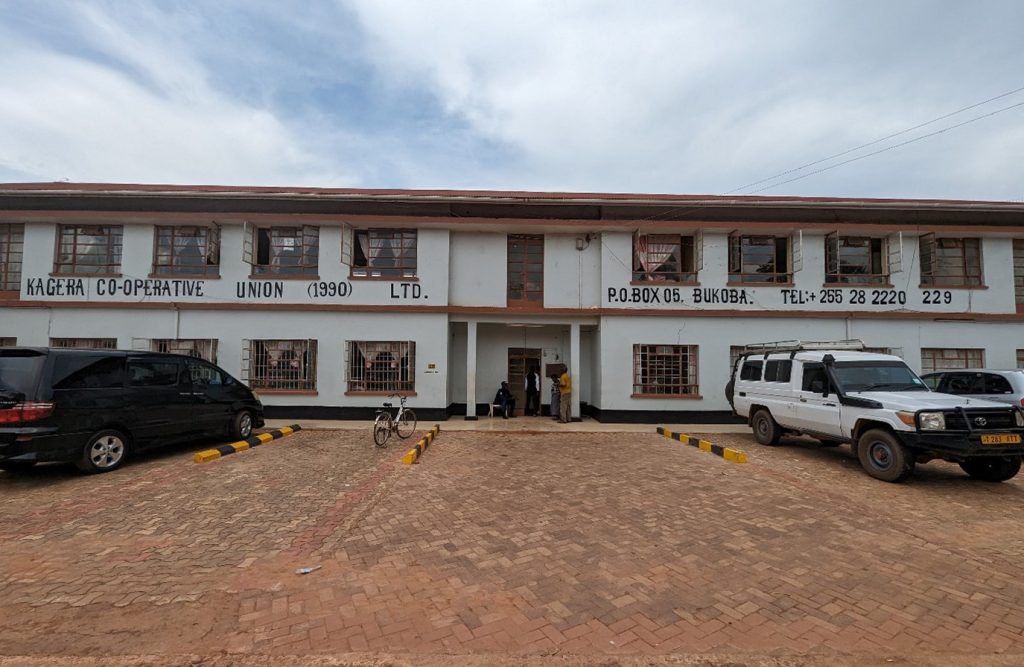
Building Financial Bridges: A SACCO Powers Clean Energy Access
Follow Kagera Co-operative Union’s journey to establish their first SACCO, creating new pathways for members to access solar energy financing. Despite initial challenges, this financial solution reached over 1,400 members and now stands ready to support farmers’ clean energy transitions across their full 60,000 strong membership base. See how this co-operative turned a long-held dream of accessible lending into reality, paving the way for sustainable rural development.
Frequently Asked Questions
What is the minimum my company can contribute? What is the maximum?
We have set minimum contributions to the IEF at £50,000. There is no maximum contribution.
Can contributions be made in installments / annually?
Due to the nature of the IEF – which is structured as a Challenge Fund – the project funding pot needs to be capitalised up front in order to allow for portfolio building, financial support awards and funding disbursements. For this reason contributions will need to be made in one installment and in year 1.
What level of funding is required for the programme to go ahead?
For IEF 2.0 to launch, we require a minimum of £400,000 in pooled funding. We have already secured €50,000 in match funding by GIZ.
How many projects will be funded in IEF Funding Round 2?
This will depend on the amount of funding that is raised. In Funding Round 1, six IEF projects were funded from a budget of €700k. If our goal of £2m is achieved, we expect to more than double the number of projects.
There is no fixed cost to each individual project, as these are tailored and designed to community needs and are not prescriptive. Therefore, the cost to deliver a given project will vary in accordance with the size of the producer organisation applying and what they are wanting to do.
Do I get a say in which projects are funded?
Organisations contributing funding to IEF 2.0 will not be involved in the evaluation of project applications or the final selection process of successful projects.
The IEF has an independent programme Steering Committee that is set up to make final decisions regarding project selection, grant and loan award sizing, and the disbursement of funds. Funders will receive details of specific projects once the application and contracting phase is complete, and the IEF 2.0 Project Portfolio is finalised.
How is the impact of the IEF projects measured?
The impact of IEF projects is monitored through a robust Monitoring, Evaluation, and Learning (MEL) framework, implemented via Fairtrade Africa and consultants, and with support from Fairtrade Foundation’s Evidence & Insights team. This includes tracking KPIs such as the number of households gaining access to green energy and finance, reductions in energy costs, improvements in energy reliability, progress in community skills development.
How can I keep up to date on progress during the IEF rollout?
Organisations that contribute to funding can expect to receive reports at the Kick-off, Mid-line and Endline stages. These reports will provide quantitative and qualitative overviews of KPIs, activity delivery status, risks and general narrative to detail progress, successes and challenges experienced by producer organisation project delivery teams.
Those contributing more than £100,000 can expect to receive more detailed project case studies and additional communications materials.
What are the risks involved in contributing funding to the IEF?
As with any sustainability programme investment there are risks involved related to project execution and the local context. These may include delays or challenges in the implementation of project plans, and / or variations in local conditions, such as political or economic instability that may affect project outcomes.
However, the IEF has built-in mechanisms to mitigate these risks through strong monitoring, ongoing financial and technical management support, community involvement and a focus on locally owned solutions.
All six producer organisation projects supported in during IEF 1.0 were successfully implemented in full and on time, despite each one experiencing and navigating unique challenges along the way.
Can I contribute to the IEF if my organisation already supports Fairtrade
Yes. Retailers, donors, companies and other organisations already supporting Fairtrade can participate and contribute funding to the IEF 2.0. Your contributions will help scale up the impact of the Fairtrade movement by finding energy access projects that align with Fairtrade’s values and support us in achieving our objectives.
How will the programme ensure long-terms sustainability beyond the funding period?
Several elements of the IEF ensure that long-term sustainability is embedded into producer organisation projects.
Firstly, project ideas must come from the communities in which they will be implemented. All projects are unique and will reflect what each community wants and needs. This means projects have community buy-in.
Secondly, projects are fully owned by producer organisations – who must allocate IEF resources to establish the necessary organisational functions to implement, manage, and monitor their projects. This means permanent capacity is built to manage activities beyond the support period.
Finally, all producer organisations must develop and lay out a plan to integrate all initiatives, enterprises and services established through IEF projects into their core operations. This means they will continue beyond IEF support.